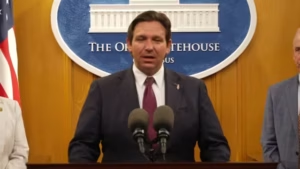After a jury awarded $670 million in damages to Energy Transfer, Greenpeace faces concerns that this ruling may suppress free speech and deter nonprofit organizations from engaging in political protests. The case has ignited debates over First Amendment rights.
Significant Legal Setback for Greenpeace: Implications for Free Speech and Activism

Significant Legal Setback for Greenpeace: Implications for Free Speech and Activism
A jury's ruling against Greenpeace could have far-reaching consequences for environmental activism and free speech protections in the United States.
In a groundbreaking case that has captivated both environmental activists and legal experts, Greenpeace has received a staggering $670 million verdict related to its involvement in protests against the Dakota Access Pipeline. Of this amount, a quarter of a billion dollars has been specifically tied to defamation claims made by the pipeline's owner, Energy Transfer. The seriousness of the ruling raises profound concerns about its implications for free speech and activism.
Experts, including David D. Cole, a prominent law professor at Georgetown University, have warned that this verdict could instill fear in nonprofit organizations that engage in political demonstrations. “This ruling may protect corporations from political criticism and silence voices advocating for change in various movements,” he stated, highlighting potential ramifications for groups such as the Sierra Club and the NAACP.
The legal battle began in 2019, when Energy Transfer accused Greenpeace of orchestrating a "violent scheme" that jeopardized its financial stability and operations, seeking to halt the construction of the controversial pipeline. In contrast, Greenpeace defended itself by asserting its commitment to peaceful protest and emphasizing that it played a subordinate role in the larger movement spearheaded by the Standing Rock Sioux Tribe, who had grave concerns regarding their ancestral land and water supply.
Central to the jury’s decision were defamation claims tied to statements made by Greenpeace, including accusations that Energy Transfer had irreparably damaged numerous sacred sites during construction activities. Greenpeace interpreted the lawsuit as a strategic attack aimed at silencing dissenting voices. Sushma Raman, acting director of Greenpeace USA, expressed alarm, asserting, "This case should concern everyone across the entire political spectrum; it poses a significant threat to First Amendment rights."
As the case develops and an appeal becomes likely, discussions surrounding free speech, activism, and corporate influence in legal matters are expected to intensify. The implications of this verdict extend well beyond Greenpeace, potentially affecting numerous advocacy groups fighting for various causes in a polarized political landscape.





















